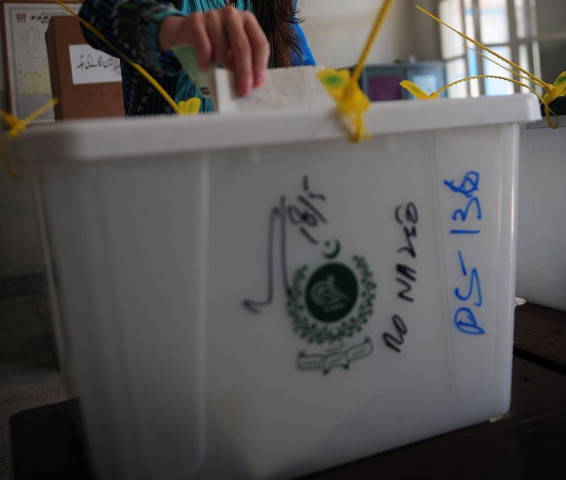Empowering the Election Commission
The ECP may now be more independent than before, but the reality is that its hands are tied in many ways.

The ECP plea is an indictment of political parties whose members make up the Parliament and whose job it is to help better the electoral system. PHOTO: AFP/FILE

The ECP has already gone though some substantive changes over the last few years — most notably regarding the election and dismissal of the Chief Election Commissioner (CEC). Previously viewed as a hand-picked official of the incumbent government, the CEC must now, following the Nineteenth and Twentieth Constitutional Amendments, be a consensus candidate between the government and opposition. And lest the CEC be at the mercy of the incumbent government’s whims, there is also now a provision that he, or other members of the ECP, can only be dismissed in the same way a superior court judge is. These are substantive and positive changes. But many more are needed. The ECP may now be more independent than before, but the reality is that its hands are tied in many ways. Consider that the entire election process is barely in its hands — and it is more of an oversight body than an execution one. Those responsible for actually carrying out the exercise on the ground aren’t employees of the ECP, nor are they answerable to the ECP. First of all, the returning officers, who are responsible for accepting and scrutinising candidates’ papers and their eligibility, are from the lower judiciary. Instead of checking the more important things, such as asset and tax declarations, etc, they end up asking inane questions pertaining to religious knowledge (as was extensively highlighted in the lead-up to the 2013 elections.)
Moving on to the actual polling day, those responsible for overseeing the stations are polling officers who are 17-grade officers from the provincial bureaucracy. Once again, they are not answerable to the ECP and will obviously be beholden to the outgoing provincial government. The ECP can write letters of complaints against these officials, but punishing them will be up to their departments. Surely this must change. Just to drive home this point, consider that candidates found involved in electoral fraud were disqualified, but no action was taken against officers that accepted the candidate’s papers or allowed the fraud during polling. Then there are the required qualitative changes such as electronic voting and GIS mapping that will be making the election process more transparent, which are only possible once Parliament legislates to allow them and provides the ECP with the requisite resources. But the biggest example of how better and more transparent polls are in the hands of political forces is the census, which has not been carried out for nearly two decades. A census is, of course, the backbone of all electoral processes. More than a month ago, all these issues were highlighted by the ECP in its five-year plan — which it had sent out to all political parties for feedback before finalisation. Of all the parties in the country, only two responded. And it wasn’t the PML-N, the PPP or even the PTI.
Published in The Express Tribune, June 7th, 2014.
Like Opinion & Editorial on Facebook, follow @ETOpEd on Twitter to receive all updates on all our daily pieces.















COMMENTS
Comments are moderated and generally will be posted if they are on-topic and not abusive.
For more information, please see our Comments FAQ